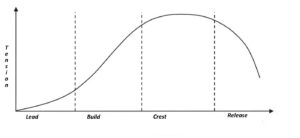AI: License to Steal
If you are or have been a content creator, AI knows your stuff. All those little “rewrite using AI” buttons that appear everywhere these days have no qualms about using your stuff – without attribution or compensation to you – to help other content creators in the same niche as you. Are you OK when your competitors steal your ideas and use them against you? I didn’t think so! So, are you OK with AI giving itself a license to steal…from you?
From quips, by-lines, neologisms, and articles (like this one, which was NOT created using AI), to deep fakes, newly-minted music, and entire best-selling books, AI is skimming what it knows will sell and repurposing it everywhere. Too bad for you if your content is truly innovative, attractive, and binge-worthy: AI can turn that great stuff into dumbed-down clickbait…instantly.
The True Cost of AI
And who wouldn’t want viral content? Except that viral content and dopamine addiction are very close to being the same thing these days, right? For what it’s worth if my content turned out to be the next fix peddled by some AI drug lord, I’d prefer to not have that kind of ethical weight on my shoulders.
Don’t get me wrong: there are positive upsides to AI in research of all kinds. AI may be able to help solve social problems that seem inherent in the human race. Scientific endeavors will get a boost. Some futurists believe AI will remove human beings from of all sorts of manual labor and basic production. More than a few apple carts may be upset, from the local farm-to-table market to the seats or world power.
The trouble is, it’s difficult to see the positive upsides when so much of what AI is doing in the world is icing the slipper slope for our rush to the bottom of whatever’s popular.
Types of AI
Wouldn’t it be nice, instead of having AI disclaimers everywhere, if AI could self-confess precisely how its content was created? Herewith:
- Black: content is entirely manufactured (deep faked) to take full advantage of its target market
- Red: refined repurposed content scraped (stolen) from anywhere, optimized to leverage popularity without regard for accuracy
- Yellow: “The News” (cable, network, print journalism, etc) which may or may not reveal is sources to be human or machine-based; factual amalgamations; virtual reality; AI-based research
- Green: Any content that disclaims AI (such as this article) and is higher than a 5th-grade reading level, sparks inspiration and/or curiosity, takes time to digest, and makes consumers feel as if they’ve had a genuinely authentic experience
TikTok, Meta, X, and others of their ilk fall into the Black or Red classification. Why? Because there is zero attempt at quality (or one might say, a moderate level of consciousness) in platforms whose primary existence is to serve up dopamine addiction.
The Yellow classification for news media is reminiscent of “Yellow Journalism” and all its attendant problems in the late 1800s. Since humankind has a hard time learning from history, we are in repeat territory here, aided by AI.
Green belongs to the genuine artists who create with words, images, sound, and form. Best-selling fiction with actual depth and mass audience appeal would fit here. We’ll allow CGI, too, in the artistic sense because feature film and entertainment by art is a different form of fakery than the black or red market kinds.
How AI Steals
Outside of the Black and Red classifications, let us examine how AI steals content at the Yellow level.
Suppose you are a best-selling non-fiction author with a shelf full of your own books behind you. All of those books are available in physical and digital media. A lifetime of your work is represented, and you’ve built a career around them. What does AI do to your life work?
 First, because AI already perceives that your work is popular, it sucks up every word you have ever written and published: all the books, all the videos, the interviews, the blog posts, the commentary. All of it. Some kind of weight is given to your oeuvre based on its popular acceptance that ranks you as more credible than someone who sounds like you, or someone who may have extended your ideas in truly innovative ways but without the kind of acclaim you enjoy.
First, because AI already perceives that your work is popular, it sucks up every word you have ever written and published: all the books, all the videos, the interviews, the blog posts, the commentary. All of it. Some kind of weight is given to your oeuvre based on its popular acceptance that ranks you as more credible than someone who sounds like you, or someone who may have extended your ideas in truly innovative ways but without the kind of acclaim you enjoy.
At this point, any random human or bot that needs instant access to your ideas can get to them simply by clicking on the “rewrite using AI” button or going into ChatGPT (or its lookalikes) with a query, even if only half-baked. Bang: your life work becomes a part of the content that is not yours, without so much as a nod in your direction (and certainly without the kind of royalties we musicians get from listeners we never know and will probably never meet).
Every time someone uses the “rewrite using AI” button, your work is stolen.
Sure, AI could give attributions, which would help. Wouldn’t it be nice if AI also dropped, say, some cryptocurrency your way to recognize your contribution? Just a thought.
The Also-Rans
What about the people within your echo chamber who are actively extending your ideas? Until their output reaches some kind of critical mass, whatever they do will be buried by AI because of your popularity factor at the Yellow level. They might try to get traction at the Red or Black levels of course, or create a work of fiction at the Green level, but competing with you at the Yellow level becomes impossible…thanks to AI.
On the other hand, you yourself might become aware of these close-in innovators, whether by direct experience or because you can create savvy queries to ChatGPT. Their ideas interest you and, because no attribution yet exists, you begin to include those “outside” ideas within your next book. Ultimately, this sparks one of those copyright lawsuits so fashionable in the music industry these days, and you eventually win it because of, let’s be honest, your greater resources. So much for the also-rans, and even more so because their ideas are now, for all AI cares, yours.
For real-life examples of this also-ran phenomena, we need look no further back into history than the COVID pandemic. The various suppressed treatments for the virus and resistance to the authorized vaccine exhibit the power of popular trust in our digital age, and the powerful will stop at nothing to co-opt AI for future similar purposes.
Applying AI in Retrospect
Admittedly, as a bone-fide creator, I’m a bit biased towards the Green classification. I prefer the slow evolution of forms that gave us great creative lineages such as Bach, Mozart, Haydn Beethoven, Brahms, and Wagner (as a musician I know them well). In addition to the creative output of composers, we could include artists, writers, poets, sculptors, philosophers, filmmakers, some architects, and any others who trace their creative ancestry in this way.
Such as these are the true, historical Imagineers (tip of the mouse-ear hat to Walt Disney). In a lineage of creation, it is an honor when one’s work is quoted or repurposed by the next generation. Imagine, if you can, how AI would have dealt with creation had it been available in Bach’s day. Would we have had Mozart, Haydn, Beethoven, or Brahms, every one of whom was dissed by their contemporary intelligentsia? Without a visionary patron willing to buck the popular trend and hire Mozart, Haydn, Beethoven, and Wagner to create something different, we would all be listening to derivatives of Bach these days!
Since AI is quite good at derivative creation, I’m not saying that human innovation is the only way forward, but I am sounding a cautionary note here. It takes a true Creative to notice the difference that makes a new piece of work Green, and I fear that with with general dumbing down of perception that has already begun thanks to techno-dopamine, humankind is at a double tipping point.
Dual Tipping Points
The first to tip will be the maturation of AI itself and how humankind determines to integrate it into civilization. However that comes down – classifications or some other way – will be closely tied to the second tip: who among us will retain the ability to differentiate between what is truly imaginative and what is derived by AI?

If the younger generations are essentially raised on AI (and this seems likely given our worldwide dopamine-tech addiction), fewer and fewer of us will be able to recognize the differences between what is real and what is artificial. The whole point of AI in the creative realm seems to be mimicry, and it does a very good job. Does that concern anyone other than me?
The Final Frontier
Imagination is and always has been the bane of those in power. Keeping humanity herded well together is a huge problem and outliers – I am one – are a threat to the shepherd, and we are liable to be nipped at the heels by powerful dogs to bring us back into conformance. Is it ironic that the world’s power-mongers sadistically trade imaginative vision for control? Without imagination, the United States (for example) wouldn’t exist, and yet those responsible for its safekeeping have drunk the Kool-AI(d) in service to what? Their own selfish desires? Certainly not imagination or real innovation. Unfortunately, AI offers easy ways for the powerful to stay in power, principally through enhanced coercion techniques deployed against we the people. It’s already happening, if Yellow Journalists are to be believed. We wouldn’t want any potentially disruptive ideas interfering with the operation of Things, would we? That might result in…well, the American election cycle of 2024, for example, or having no solution to the problems in the Middle East, Ukraine, China, etc.
That said, human imagination may be the final frontier. While AI ponders dark matter, quantum physics, psychic phenomena, or world peace, or helps those studying quantum gravity to find the Single Unified Theory of Everything, those in the true creative arts may be forced to retreat into their own series of Dark Ages, keeping the spirit of their craft alive and safe from AI interlopers. Perhaps we’ll also imagine novel ways to monetize our craft so that it can’t be stolen.
In this final frontier, how will you fare? Will you serve AI or will it serve you? If it does serve you, will you sleep with a clear conscience? When everything you and your competitors do all looks and sounds the same, what will distinguish you? If not imagination, then what? And if you’re not imaginative now, then when?
And, if you’re reading this in some distant far-off future, will you perceive it as novel, quaint, historically prescient, or rubbish? I submit that your response will be based in part on whether the AI of that far-off time chose to serve it to you, or you found it in some digital archive of what life was like in the second decade of the 21st Century BCE.
_____________________________
Over the course of more than 40 years of paying attention to how music works on us, Bill Protzmann has rediscovered the fundamental nature and purpose of music. Bill has experimented with what he learned through performing concerts, giving lectures, facilitating workshops, and teaching classes. For example, he first published on the powerful extensibility of music into the business realm in 2006 (here and abstract here). Ten years later, in 2016, he consolidated his work into the Musimorphic Quest. In this guided, gamified, experiential environment, participants discover and remember their innate connection to this ancient transformative technology. Also, The National Council for Behavioral Healthcare recognized Bill in 2014 with an Inspiring Hope award for Artistic Expression, the industry equivalent of winning an Oscar.
Musimorphic programs support wellness for businesses, NPOs and at-risk populations, and individuals.



